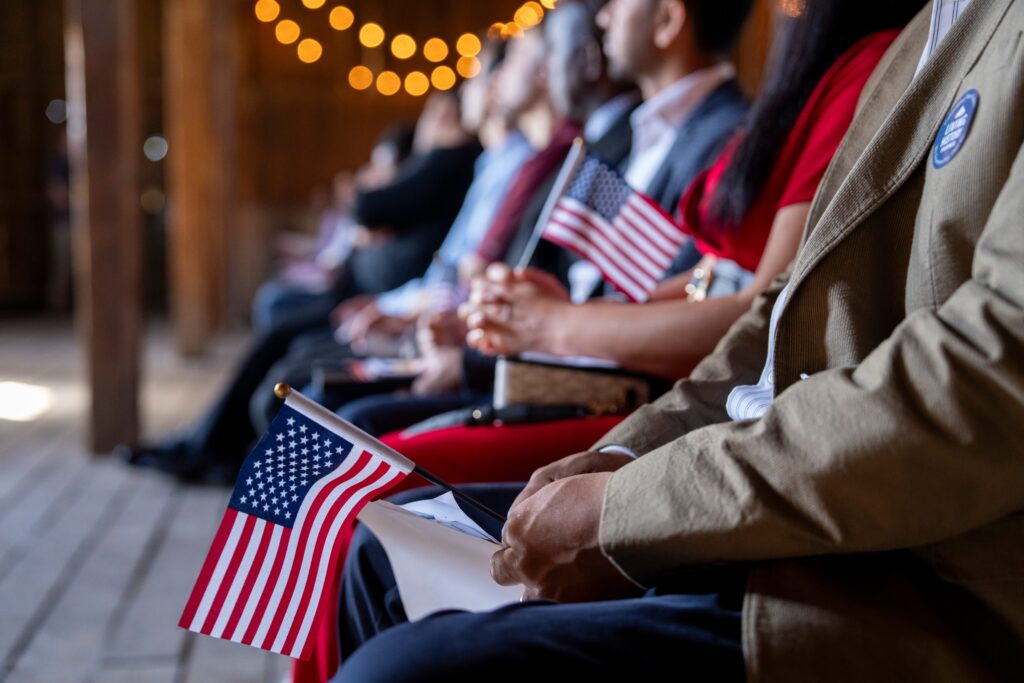I’m the son of German immigrants who arrived in the United States with little more than their aspirations and their formidable work ethic. So, I’ve been monitoring the Trump administration’s approach to both illegal and legal immigration with a first-generation American’s interest—and a patriot’s conviction that our history has been written by successive waves of immigrants.
What’s positive is that illegal immigration has fallen dramatically. Illegal crossings at the US-Mexico border are down by some 95 percent from peak levels seen during the Biden administration. This decrease is due to strict new policies, tough enforcement, and the reinstatement of the “Remain in Mexico” policy, which requires asylum seekers to wait in Mexico for the duration of their immigration court proceedings.
What’s less positive is a souring mood toward legal immigrants, including charging $100,000 for an H-1B visa. “Do legal immigrants enrich America or damage it?” the Wall Street Journal editorial board asked in its lead editorial today, which is worth reading in its entirety. “That’s one of the debates now emerging on the political right, including it seems even in the White House.” The Journal’s editorial board notes that President Donald Trump this week spoke to Laura Ingraham on Fox News in favor of embracing skilled foreign workers, while Vice President JD Vance has signaled that he’d favor far fewer of them.
“For all of his campaigning against illegal immigration, Mr. Trump understands that America needs the world’s strivers to continue to prosper,” writes the Journal’s editorial board. “Perhaps he can make that case to his young apprentice.”
Those who are skeptical about large numbers of legal immigrants suggest these newcomers take Americans’ jobs, undermine social cohesion, and dilute American identity. These concerns are as old as the United States, and they were raised regarding previous waves of Germans, Irish, Italians, Eastern Europeans, and Asians. Time has always proved these concerns wrong.
My parents arrived before World War II and amid the Great Depression and its aftermath, first as outsiders and then as participants in a national project bigger than any of us. Their story wasn’t exceptional. Millions of families—today’s engineers from India, doctors and nurses from East Asia, African entrepreneurs, young Latin American graduates across any number of fields—are contributing to that same project.
When Google CEO Sundar Pichai accepted the Atlantic Council Global Citizen Award in 2022, he said, “More than twenty years ago, I immigrated to the US. When I arrived, I was met with open-mindedness, tolerance, and acceptance, all of which helped ease my path. Looking back on that period of my life, what I remember most are the people who made me feel welcome. Because of them, I started to feel as much a part of this country as I did growing up in India.”
Every generation of Americans has faced some version of this immigration argument since the revolution that created our country almost 250 years ago. If anything, the stakes now are higher. If the United States wants to stay competitive in an era of artificial intelligence, demographic decline, and intensified geopolitical rivalry with China, then the country will need more of what has always made America great.
“A quarter of billion-dollar U.S. startups were founded by an immigrant who arrived as an international student,” the Journal’s editorial board writes. “Mr. Trump seems to recognize it is self-destructive to train these students and then send them back to India or China instead of building firms here.”
A steady flow of legal immigration has been a reliable source of US renewal for more than two centuries. It helped assure US dynamism after World War II, it contributed to the explosion of Silicon Valley, and it will help ensure our national resilience as we face an inflection point made up of ever-changing economic, technological, and geopolitical challenges.
History’s lesson here is a clear one. The Trump administration’s embrace of these newcomers will further strengthen America.
Frederick Kempe is president and chief executive officer of the Atlantic Council. You can follow him on X @FredKempe.
This edition is part of Frederick Kempe’s Inflection Points newsletter, a column of dispatches from a world in transition. To receive this newsletter throughout the week, sign up here.
Further reading
Tue, Nov 11, 2025
It’s time to reckon with the geopolitics of artificial intelligence
Inflection Points By Frederick Kempe
The world has entered the most consequential tech race since the dawn of the nuclear age, but this time the weapons are algorithms instead of atoms.
Wed, Aug 6, 2025
How the US and Colombia can tackle crime, migration, and fallout from Venezuela’s crisis
Issue Brief By Lucie Kneip, Geoff Ramsey
Despite differences in priorities and political approaches, opportunities exist for the US and Colombia to coordinate policy that promotes stability in Venezuela and the broader region.
Tue, Nov 19, 2024
Border security and the future of DHS: Will Trump 2.0 earn the public’s trust?
New Atlanticist By Thomas S. Warrick
The incoming US president has promised mass deportations, but there are three circumstances that could erode public support for the plans.
Image: Addiel Martinez, originally of Mexico, holds an American flag during a naturalization ceremony at Living History Farms in Urbandale, Oct. 10, 2025.



